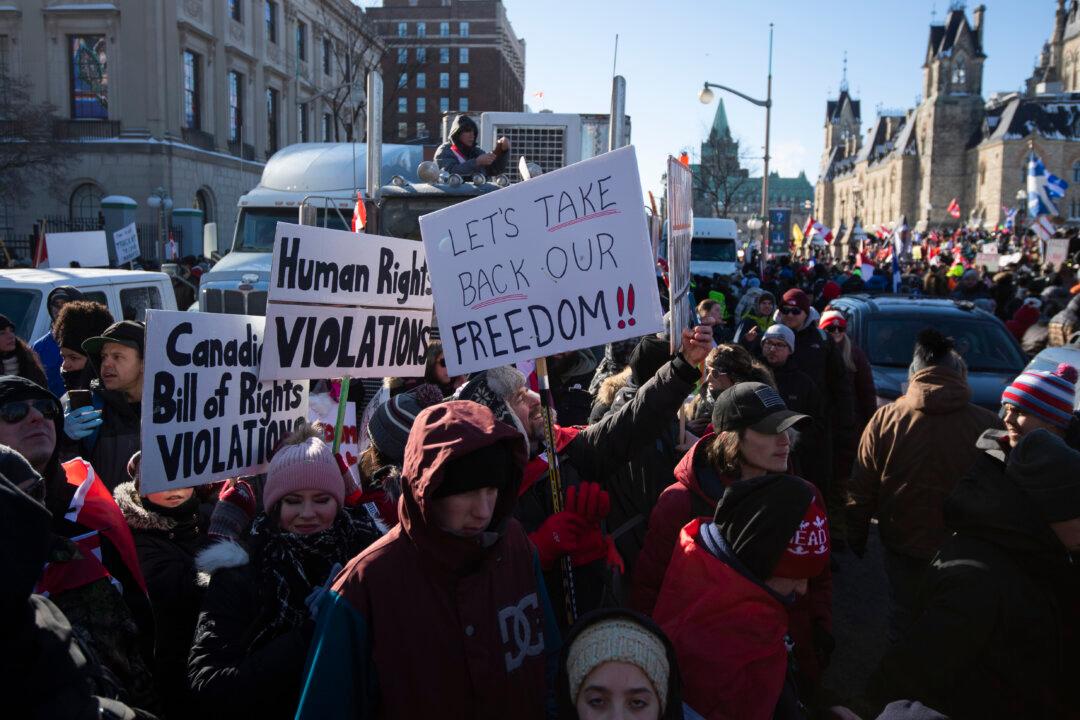A majority of Canadians say it’s time to end all COVID-19 restrictions and allow people to manage their own level of risk, a new Angus Reid poll shows.
The survey, published on Jan. 31, found that 54 percent of Canadians are in favour of ending the pandemic restrictions—an increase of nearly 15 percentage points from the results of a similar poll conducted in January two weeks earlier, which showed 40 percent in favour.





